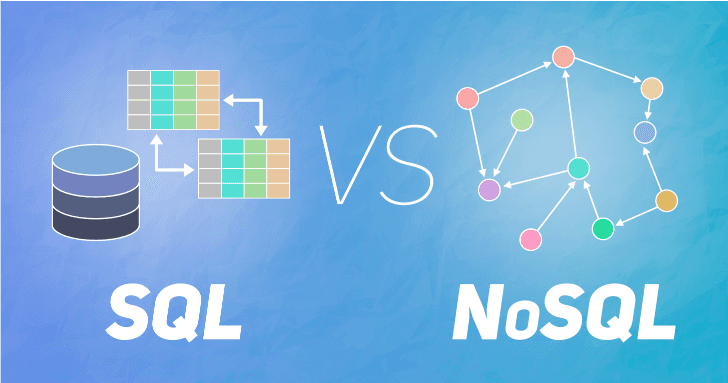SQL vs. NoSQL Databases: Unraveling the Differences

SQL vs. NoSQL Databases: Unraveling the Differences
In the realm of databases, developers often face the decision of choosing between SQL (Structured Query Language) and NoSQL (Not Only SQL) databases. Each type comes with its own set of characteristics, use cases, and advantages. In this blog post, we'll explore the fundamental differences between SQL and NoSQL databases to help you make an informed decision for your specific project requirements.
SQL Databases
What is SQL?
SQL databases, also known as relational databases, are based on the principles of a structured schema. They use a tabular format to store data, where each column represents a different attribute, and each row contains a specific record. SQL databases adhere to the ACID (Atomicity, Consistency, Isolation, Durability) properties, ensuring data integrity and consistency.
Key Characteristics of SQL Databases:
-
Structured Schema: Data in SQL databases follows a predefined structure, making it well-suited for applications with a fixed data model.
-
ACID Properties: Transactions in SQL databases are characterized by Atomicity (transactions are treated as a single, indivisible unit), Consistency (data is in a consistent state before and after the transaction), Isolation (multiple transactions can occur concurrently without affecting each other), and Durability (once a transaction is committed, changes are permanent).
-
Data Integrity: SQL databases enforce strict data integrity constraints, ensuring that data adheres to predefined rules.
-
Complex Queries: SQL databases excel at handling complex queries and relationships between tables through JOIN operations.
-
Vertical Scalability: SQL databases are often scaled vertically by increasing the power of the existing server, which may have limitations.
NoSQL Databases
What is NoSQL?
NoSQL databases embrace a more flexible and dynamic approach to data storage. They are designed to handle large volumes of unstructured or semi-structured data and do not strictly adhere to the traditional tabular structure. NoSQL databases are known for their scalability, flexibility, and ability to handle diverse data types.
Key Characteristics of NoSQL Databases:
-
Schema-less: NoSQL databases are schema-less, allowing for the storage of data without a predefined structure. This flexibility is beneficial for projects with evolving or unpredictable data requirements.
-
CAP Theorem: NoSQL databases are often designed with consideration for the CAP theorem, which states that it's impossible for a distributed system to simultaneously provide all three of the following guarantees: Consistency, Availability, and Partition Tolerance.
-
Horizontal Scalability: NoSQL databases are typically scaled horizontally by adding more servers to the database, distributing the load across multiple machines.
-
High Performance: NoSQL databases are well-suited for read and write-intensive workloads, making them a preferred choice for certain applications, such as real-time analytics.
-
Variety of Data Models: NoSQL databases support various data models, including document-oriented (e.g., MongoDB), key-value pairs (e.g., Redis), wide-column stores (e.g., Cassandra), and graph databases (e.g., Neo4j).
Choosing Between SQL and NoSQL
When to Choose SQL:
- For projects with a fixed and well-defined data structure.
- When data integrity and consistency are critical.
- In scenarios where complex queries and transactions are common.
When to Choose NoSQL:
- For projects with evolving or unpredictable data requirements.
- When scalability and performance are top priorities.
- In situations where flexibility in data modeling is essential.
Conclusion
In conclusion, the choice between SQL and NoSQL databases depends on the specific needs of your project. SQL databases offer a structured and consistent approach suitable for applications with a well-defined data model, while NoSQL databases provide flexibility and scalability for projects with diverse and evolving data requirements. Understanding the characteristics, strengths, and trade-offs of each type will empower you to make an informed decision that aligns with your project goals and constraints. Whether you choose the structured rigor of SQL or the dynamic flexibility of NoSQL, both types of databases play crucial roles in the ever-expanding landscape of modern application development.